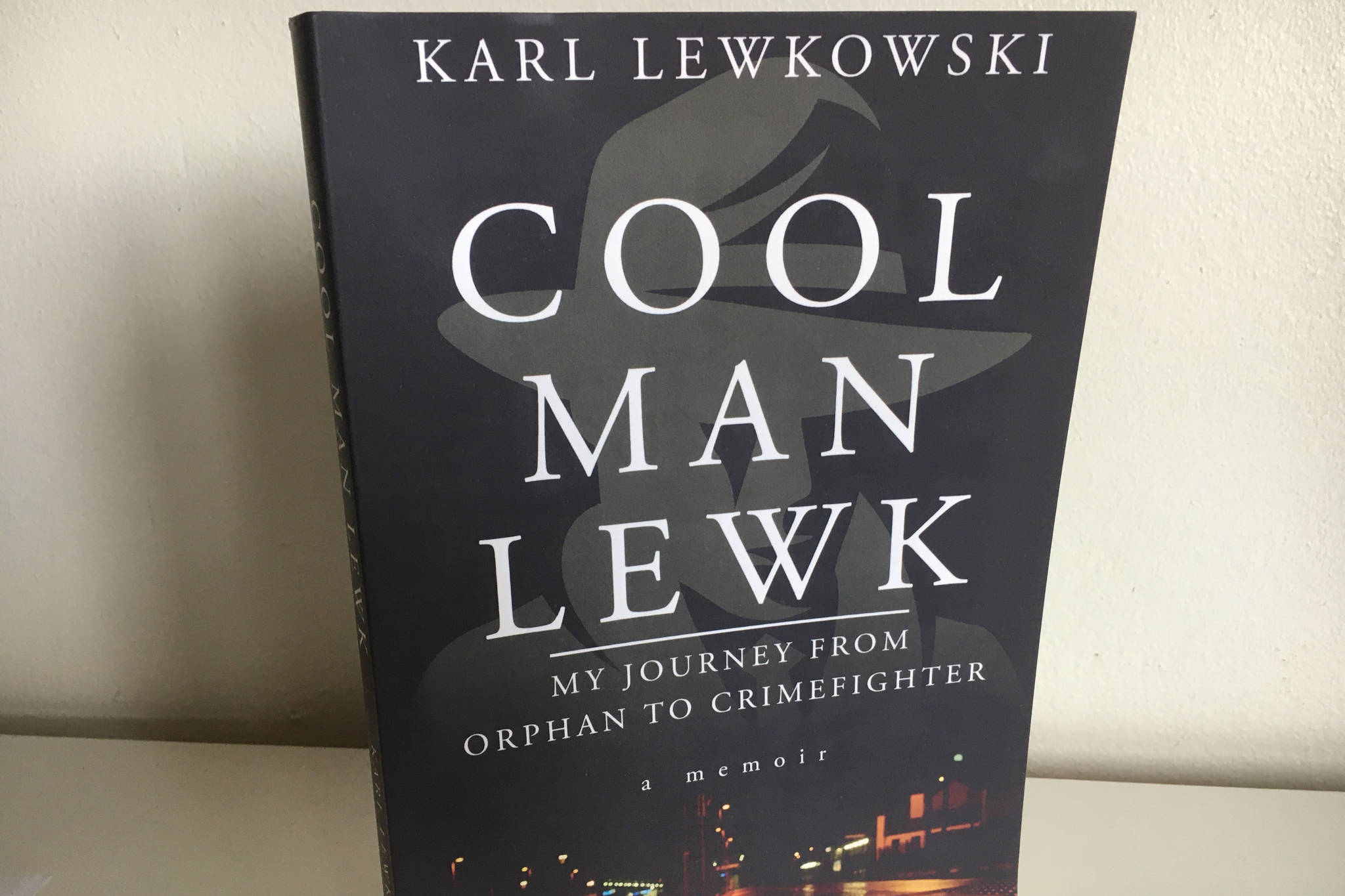In the ‘70s and ‘80s, Juneau was a much different town, but policing, if a new book is any judge of events, was much the same.
“Cool Man Lewk” was written last year by Karl Lewkowski about his life, including a seven-year stint as a member of the Juneau Police Department.
Lewkowski, born in Ohio and growing up at least partially in an orphanage, moved to Juneau with his wife and children in 1973, Lewkowski said in a phone interview.
“I left Ohio because my kids were teenagers giving us a rough time,” Lewkowski said. “I had a convenience store and sold it.”
[Senate candidate shadowed by anti-gay article, election post]
Lewkowski’s younger brother, Tony, had moved to Juneau previously, working with what would eventually become GCI.
“I visited my brother and just fell in love with the place,” Lewkowski said. “The beauty of it; the way the city was situated. My brother was there and I thought it was the perfect place to go.”
Working first with a series of grocery companies, Lewkowski made the decision to join the police department when a pair of officers, one of them a friend, were killed. Officers Jimmy Kennedy and friend of Lewkowski’s Officer Richard Adair were killed by a resident on Evergreen Avenue while on a call on April 17, 1979. The suspect died by suicide before police were able to apprehend him, according to the book.
“I applied for the traffic officer’s job,” Adair said. “They said ‘No, you’re going to be a patrolman,’ there in 1979.”
While Lewkowski’s wife, Toni, was initially apprehensive about it, they purchased a police scanner that she’d listen to while Lewkowski was on shifts, the book said. Lewkowski initially learned from Juneau officers before attending the state’s Public Safety Academy in Sitka in October of 1979.
JPD was a smaller organization at the time, Lewkowski said, with roughly 15-20 officers and a station located near Marine Way downtown. Patrolling was different as well, with Alaska State Troopers responsible for part of the area.
“The troopers had one end of town, and we had the other end of town. We backed up the troopers a lot,” Lewkowski said. “I have nothing but good memories of the captains, the lieutenants, the sergeants.”
Lewkowski would go on to pick up the rank of corporal in 1981, and enjoyed the work a great deal, he said. Juneau was beginning to get cruise ships, there was plenty of through-traffic dealing with the Trans-Alaska Pipeline System, and alcohol was a perpetual problem.
“I loved working the streets. I walked the town, I knew the town. I thought I had a good rapport with the people,” Lewkowski said. “The danger was always there. I would say, being in a small community, with a lot of people coming in and out, there was always crime to look for. It was a great place to be a police officer. I was sad to leave.”
During his time with JPD, Lewkowski would deal with murders, manhunts and escapees from prison. Lewkowski would also serve with the JPD’s nascent Special Emergency Response Team, predecessor to the more modern SWAT teams, as well as with narcotics teams. Lewkowski would first serve under Chief Joseph Ciraulo, and upon Ciraulo’s retirement in 1985, Chief Michael Gelston, who passed away in late December in 2020.
“When Chief Gelston passed away, I had a tear in my eye,” Lewkowski said. “I sent flowers, I talked to the boys, told them what a good chief he was.”
Lewkowski was eventually obliged to leave Juneau to return to Ohio to deal with his mother-in-law’s failing health, leaving with a glowing letter from on of JPD’s sergeants, according to the book. Lewkowski continued briefly working with a narcotics unit in Ohio, before circumstances conspired to send him into private investigative work, Lewkowski said.
“If not for my wife’s mother dying, we’d probably have stayed in Alaska forever,” Lewkowski said. “It was a great place to be a police officer. I was sad to leave.”
• Contact reporter Michael S. Lockett at (757) 621-1197 or mlockett@juneauempire.com.

